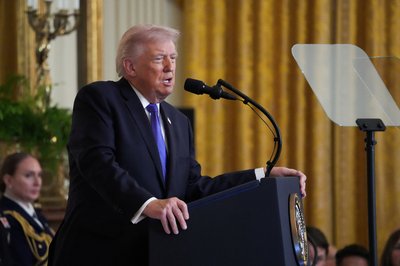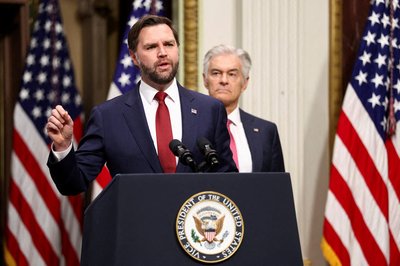NOTE: If you are short on time, watch the video and complete this See, Think, Wonder activity: What did you notice? What did the story make you think? What would you want to learn more about?
SUMMARY
Meta announced it's ending third-party fact-checking on its platforms including Facebook and Instagram, calling the decision a return to a “fundamental commitment to free expression.”
CEO Mark Zuckerberg said the rules had become too restrictive and prone to over-enforcement. Geoff Bennett discussed the implications of this shift with Renee DiResta of the McCourt School of Public Policy at Georgetown University.
View the transcript of the story.
News alternative: Check out recent segments from the NewsHour, and choose the story you’re most interested in watching. You can make a Google doc copy of discussion questions that work for any of the stories here.
Key terms
community notes — option that allows social media users to submit fact-checks to posts that are misleading or missing key information
Note: You may want to read Poynter Institute's Why Community Notes mostly fails to combat misinformation.
jawboning — use of persuasive or implicit threats made in public to influence political outcomes rather than making a direct action through legislation
Read this article by Knight First Amendment Institute to learn more.
WARM-UP QUESTIONS
- What is Meta, and what are some of the social media companies it owns?
- Who has been providing fact-checking for Meta platforms up to this announcement?
- Why does Meta CEO Mark Zuckerberg say they are ending formal fact-checking on Meta-owned sites?
- How will Meta platforms change their policies about misinformation and hate speech going forward?
- Where else are community notes used instead of dedicated fact checkers?
FOCUS QUESTIONS
- Do you think fact-checking is in conflict with principles of free speech? Why or why not?
- President-elect Donald Trump said he believes Zuckerberg is responding to past threats that he's made towards Zuckerberg, also known as "jawboning," according to guest Renee DiResta.
- Do you see Zuckerberg's actions as capitulating (giving in) to Trump? Explain.
- What would you do if you were the head of a company and faced with similar political pressures?
Media literacy: After watching this segment, what are some pros and cons of using dedicated fact checkers for social media companies? What are some pros and cons of using community notes?
WHAT STUDENTS CAN DO
Have you ever fallen for misinformation or disinformation on social media? Have you ever passed along a story or image that you later realized was false, or even generated by AI? If so, how would you fact-check the material in retrospect?
As individuals or in groups, find one example of false information on social media. Then work together to write a short "community note," fact-checking or explaining why the material is false or misleading.
You can also check out this video from MediaWise's Teen Fact-Checking Network on how to make a fact-checking video — if there is time, make one as a class!
(Teachers: You can find more lesson plans and videos based on MediaWise's Teen Fact-Checking Network here.)
Fill out this form to share your thoughts on Classroom’s resources.





